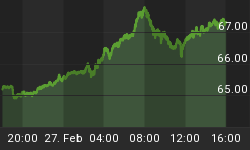G20 gatherings of world leaders on the surface are all the same: they conclude with a meaningless anodyne statement that everyone can agree with. But these meetings do serve a purpose: they allow the world leaders to meet informally and exchange views.
Since the last G20 in St Petersburg in 2013 when there was a high degree of conviction that economic growth would return, the global economic outlook has instead deteriorated significantly. Instead of last time's mutual bonhomie over the prospect of their collective success, the world's leaders this time are almost certainly worried. They would have learned about the failure of monetary policy everywhere. They would have had this first-hand from Japan's delegation, which is on its way to financial and currency destruction. The despair in the European delegations would have been obvious as well.
The problem is that post-war monetary theories have failed to deliver. Lower interest rates and increased quantities of money in order to promote economic growth no longer work. The abandonment of the laws of the markets in favour of stimulating consumer demand by monetary means has turned out to be a blind alley. Time will tell, but if the global economy is heading for a slump, the banking system will become overburdened with defaulting borrowers, and government deficits will rise uncontrollably, especially in the welfare nations. This cannot be permitted to happen under any circumstances. It is therefore quite likely that the alternative to monetary-driven policy, accelerated government deficit spending as a pre-emptive measure, will be tried instead. And in this respect the relative success of the British and American economies will be attributed to their large budget deficits, while the misery of austerity is identified with the problems in France and the southern Eurozone.
These are bad and confused arguments, but they will be emotionally attractive to the political class, while the central bankers probably feel it is time the politicians took responsibility for economic management. Furthermore, it is surely becoming obvious that monetary solutions only enrich the bankers. And the most effective way of countering deflation, economists will argue, will be for demand-led price rises for consumer products, which have a better chance of coming about through increased government spending. And do not be surprised if economists argue that governments need to take over the debt-creation process to kick-start the business cycle.
We might look back on Brisbane as a milestone in global economic policy, when governments and central banks changed the emphasis of economic management from monetary stimulation through the financial system towards a greater emphasis on direct government intervention. In the process two things are likely to happen: currencies will begin to lose their purchasing power with respect to everyday goods, and government bond yields are likely to rise, undermining financial asset valuations.
This will certainly puff up GDP, because government spending is a significant part of it. But the idea that controlled price inflation can be engineered flies in the face of all experience. If the emphasis does shift from monetary solutions towards more aggressive government spending the risk will also shift towards an uncontrollable decline in purchasing power for currencies. It will be very good for inflation hedges like gold.















